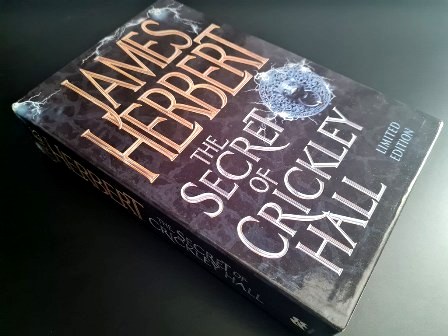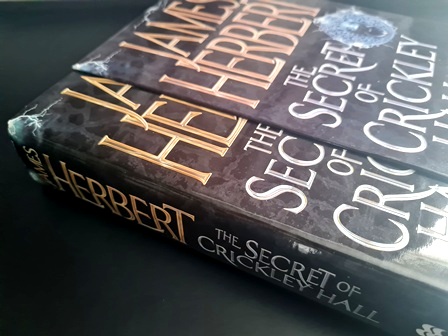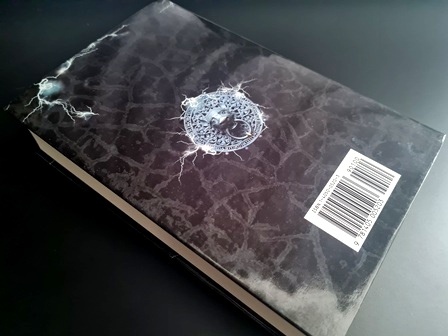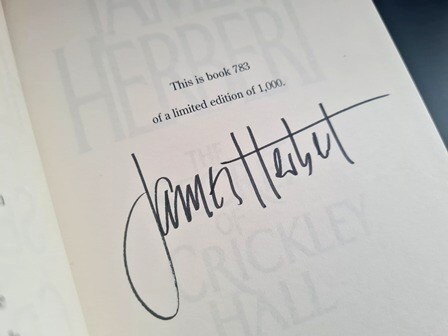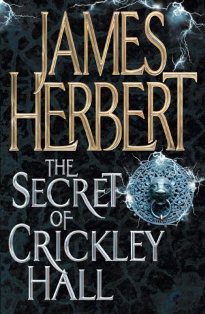
First published back in October of 2006, British horror author James Herbert’s novel ‘The Secret Of Crickley Hall’ followed on from an impressive line of successful horror novels that have made the author one of the biggest names in the horror fiction field.
When the novel was first published, a limited-edition slipcased version of the hardback was released. This version of the book was limited to one-thousand numbered and signed editions.
In November and December of 2012 the BBC broadcast a two-part tv adaptation of the story which was directed by Joe Ahearne.
DLS Synopsis:
Cameron Caleigh (‘Cam’) was just five-years-old when he went missing in broad daylight from a park in London. And now, with the anniversary marking a year since the young boy went missing approaching, Cam’s parents, thirty-seven-year-old mechanical engineer Gabriel Virgil Caleigh (Gabe) and his wife Eve Caleigh, together with their daughters, twelve-year-old Loren and five-year-old Catherine (Cally), have decided to leave their home in London and spend a couple of months or so living out in the rural countryside of Devon. Gabe’s work with the company ‘Seapower’ has brought the mourning family to the harbour village of Hollow Bay, where Gabe had already found a place for them to rent for the duration of their stay there. And so their new home for the next couple of months is Crickley Hall.
From the outside the building looks bland and depressingly understated, however upon entering the premises the interior feels incredibly out-of-place, with its grand hallway leading off to various interconnecting rooms and an overhanging balcony. But no matter how elaborate the interior architecture is, the building cannot hide the foreboding atmosphere that lingers throughout the building.
Upon arriving, the family’s seven-year-old pet dog, Chester, has an instant reaction to Crickley Hall. Clearly petrified of the building, the dog whimpers and whines, whilst desperately trying to escape into the grassy landscape outside. The family try to put this uneasy reaction towards their new home down to simple readjustment, but underneath their reasoning, they know that something isn’t right with Chester’s fear of the place.
Being Crickley Hall’s first tenants in ten years, the property is understandably cold and lifeless when the Caleigh family first arrive. But as their time in the property continues, the atmosphere in Crickley Hall hasn’t been getting any better. In fact, with strange noises and loud banging disturbing the family at night, the house quickly takes on a particularly oppressive air.
In their first couple of days in the property they meet the eighty-one-year-old gardener and handyman, Percy Judd, who is responsible for the general maintenance and upkeep of the property and its surrounding grounds. After gentle persuasion, Judd informs an increasingly frightened Eve that Crickley Hall has a particularly dark history. Back in October of 1943, when it was looking like the Blitz was finally over, eleven young orphan evacuees from London reportedly drowned in the cellar of Crickley Hall. Possessing a well leading to an underground river which is located in the main cellar chamber, when the great winter flood hit Hollow Bay, the rising river-water surged up from the well and flooded the entire lower section of the isolated house.
The guardian and head teacher for the orphans (whose ages ranged from five to twelve years old), was a forty-two-year-old man named Augustus Theophilus Cribben. A man who together with his sister, Magda Cribben, ruled over the eleven orphans with a strict hand of discipline and hard punishment. But, on the night of the 1943 flood, Augustus Cribben’s body was found naked in the great hall, the flesh cut to shreds from the imploding windows.
However, all is far from right with Crickley Hall. With the strange unexplainable sounds and unexplainable occurrences getting worse by the day, Eve is soon convinced that the property is haunted. Ever the pragmatist, Gabe is instantly sceptical, but admits that he cannot account for the sounds and strange happenings. But when it appears that their two daughters may be in danger, the couple decide that some sort of action must be taken - and quickly. However, after Eve experiences a dream which she is convinced involved her missing son trying to contact her, the desperate mother gets in contact with local psychic, Lili Peel, to try and establish contact with the lost boy.
With the possibility of finally reaching out to Cam, Eve is now reluctant to leave Crickley Hall. But the forces at work are getting stronger. The strange occurrences taking on a more threatening manner. And now it’s only a matter of time before the house has its next victim…
DLS Review:
James Herbert has utilised the ‘haunted house’ premise on numerous occasions in his past work. Indeed, from ‘The Magic Cottage’ (1986) to ‘Haunted’ (1988), to a considerable portion of ‘Once…’ (1999) not to mention his non-fiction book ‘Dark Places’ (1993); Herbert certainly knows his way around a haunted house or two. And so should it be such a surprise that the author has once again returned to this time and tested supernatural premise? Perhaps not, but venturing over such well-worn ground certainly has its pitfalls, which if not recognised or appropriately addressed, can be particularly detrimental to the overall success of the book. And sadly in this case, you can’t help but feel that Herbert is really only re-working a scattering of elements from many of his previous novels. Nothing in the tale has the daring break-from-the-norm that is present in the majority of his preceding novels.
So first off I’ll start with the areas where the novel does well. Characterisation is well-formed, well-developed, and with a clear idea of who each individual is and their respective input into the tale. The principal characters (namely the Caleigh family along with a handful of others), are each defined just enough to create bonds and draw sympathy from the reader. All without getting too bogged down in their intricate histories. Indeed, the main crux of the plot deals with issues from the past taking its effect on the present day. An aspect that is cunningly mirrored with each and every one of the characters to a certain degree.
With a haunted house and supernatural dominated plot, it’s absolutely essential that the correct atmosphere is achieved in order for the real ‘horror’ element to come through. It needs that ever-present cloud of unpredictability. That nail-biting ‘it can happen at any time, anywhere and pretty much do anything’ vibe. There always needs to be that voice of doubt plugging away at the bones of what’s going on. And it needs to be bursting at the seams with quivering tension. Utterly stomach-churning tension. And Herbert really excels in absolutely all accounts here.
From the moment the Caleigh family first set foot inside Crickley Hall there’s an enormous sense of foreboding expelled from what seems like every inch of the building. Tightly interwoven with the ghostly episodes is an almost overwhelming feeling of great sadness, which follows the characters around throughout the entire length of the book. There’s so much tragedy involved, particularly in relation to young children, that the reader can’t help but be brought down, even just a little, by the near-constant doom and gloom of what had previously transpired in Crickley Hall as well as for the Caleigh family.
However, the main faulting with the tale is undoubtedly the sheer over-padding that accompanies every aspect of the storyline. At first the reader feels that the novel is going along at a reasonable pace, with the characterisation being set down in a deliberately thorough way. But as the novel continues, so does the excessive padding-out. The middle quarter of the novel sags horrifically, enticing the reader to start flipping through the pages to see how many more are left to the end. The whole tale is quite simply too painfully drawn out for what it is.
Alongside this, Herbert makes much of the final third of the tale (which is a slow-running build to the final showdown) far too contrived for its own good. It’s another cringe-worthy case of utilising a psychic’s abilities to ‘fill-in-the-gaps’ and having our antagonist talk everyone through the reasoning behind his heinous plans before he commences with them, just so he can get it all off his chest once and for all. Well, as Bob Hoskins used to say “it’s good to talk”. But good god does it feel like one hell of a copout.
And yes, the ending is pretty darn weak. Everything’s just wrapped up in an off-handed fashion, without much thought having gone into it all. To be honest, the last ten or so chapters read like Herbert just couldn’t be bothered with the novel any longer. And once the author gets bored, it’s pretty safe to say that the reader would have already been there for quite some time.
But as I mentioned earlier – it ain’t all bad! There’s plenty to like about the tale. Just enough of a scare factor to keep the pulse rising and falling. Plenty of atmosphere to keep the tension creeping up and up. And masterfully fleshed-out characters to really engage the reader with. But at the end of the day, these don’t collectively save the novel. And when the last page is finished, it’s hard not to feel just a little disappointed that this was a James Herbert tale.
The novel runs for a total of 600 pages.

© DLS Reviews
